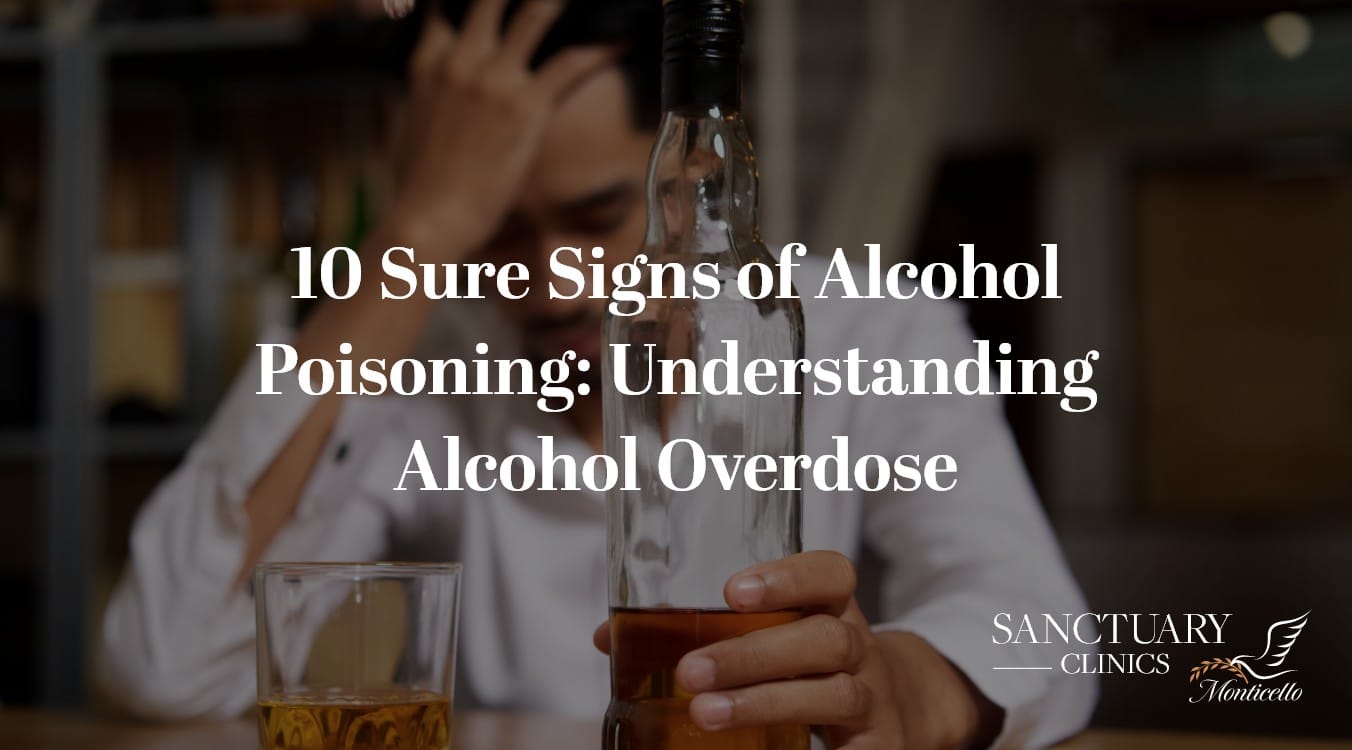You may be worried your loved one is addicted to drugs and wondering how you can truly know they are addicted. Drugs are substances which are ingested in the body to alter brain chemicals, induce euphoric feelings, numb pain receptors, and generate whatever required or desired effect specific to the drug. Classes of drugs include the following: alcohol, opioids, benzodiazepines, cannabinoids, barbiturates, and hallucinogens.
It can be difficult to diagnose someone who is abusing drugs, especially if they are trying to hide it. However, there are some signs you can look out for which can serve as clues of their drug abuse. In this post, we will consider drugs, addiction, and ways to find out if your loved one is addicted to drugs.
What effects do drugs have on your body?
When drugs are ingested, they are absorbed into the blood and circulate through your body, attaching themselves to neuro-receptors depending on the characteristics of the drug. When the drug particles attach themselves to your brain receptors, they alter production of endorphins and your brain’s natural ability to produce these drugs is hindered. This is a chemical change and is temporary. The drugs can act as stimulants or depressants of the central nervous system.
How does someone get addicted to drugs?
When drugs are ingested for too long, the brain’s ability to produce these hormones and neurotransmitters is greatly reduced, leading to dependence on the drugs to produce these feelings. At this point, the change has become physiological, and the body craves and depends on the particular drug for “normal” functioning, that is, the person has become dependent on a drug.
The next stage from dependence is addiction, whereby you simply cannot do without a drug. At this point, your body goes into a state of withdrawal, exhibiting symptoms like sweating, shaking/tremors, agitation, vomiting, restlessness, depression, etc. When a person goes through withdrawal phases, reintroducing the drug/substance to the body is what restores “normal” functioning.
Drug addiction not only affects the individual’s life but also the person’s family and friends because the addict acts in ways which can be noticed or felt by others. Addicts will usually try to hide the extent of their habits or even hide the addiction in totality.
Signs and symptoms of drug addiction:
Below are nine signs which can be observed by family and friends to determine whether a loved one is an addict.
-
Secrecy of actions/changed schedule
When someone starts using drugs, they don’t want the whole world to know about it, especially their loved ones. They have a heightened sense of self-cautiousness and paranoia, which leads them to be wary of being discovered. Since most drug habits are frowned upon in general society, addicts tend to want to act in secret so the stigma and chastising which comes with addiction isn’t experienced.
When people begin using drugs, they change their schedules and fashion them according to the times when they will be free or uninterrupted. For example, if their roommates will be home at 6pm and leave at 5am, the addicts will be home earlier than 6pm and leave later than 5am so they have space to do their drugs without interference. Addicts will be ingenious in fixing their schedules in such a way which will enable their drug habit. They plan their days around the convenience of getting a “fix” and will be deliberate so as not to miss.
-
Changes in weight
Substance abuse leads to weight changes directly and indirectly. Weight loss is commonly seen in cocaine, methamphetamine, and MDMA (methylenedioxymethamphetamine like Molly and ecstasy) addiction. These substances are stimulants and suppress appetite, while simultaneously increasing calorie and fat metabolism. They also stimulate the central nervous system and speed up the brain processes, which dulls the feeling of hunger and reduces food intake.
Alcohol causes the inverse initially, where you gain weight due to the high caloric intake of alcohol. But over time, alcohol reduces food absorption in the small intestines and causes liver damage which affects glucose metabolism in the liver.
Other drugs like opioids cause you to reduce food intake as personal self-care decreases in the addiction process. Diseases associated with IV drug use such as hepatitis and HIV are also associated with weight loss.
-
Financial difficulties
Drug addicts prioritize the purchase drugs over other financial responsibilities. Addiction is long-term and intensifies over time. Therefore, the more tolerance a person develops, the more of the drug they will use.
An indirect effect of drug abuse on finances is compromising on responsibilities at work or school, which could lead to job loss or dropping out of school.
Since addiction is also coupled with long-term health problems and infections like HIV/Hepatitis and increased self-harm practices, financial health liabilities are also experienced in paying for healthcare.
Legal fees employed when a drug abuser commits a crime, such as theft to fund their drug lifestyle, adds to the increasing financial obligation of a drug abuser.
-
Strange smells around the house
The smell of drugs, especially marijuana, being smoked around the house is a strong musky smell. Usually, in an attempt to cover up this smell, addicts will use all manner of scents like air fresheners, incense, perfumed sprays, etc. The combination of these fresh smells and the stale stench of drugs is a nasty concoction.
-
Physical changes in the eyes, lips, or skin
When under the influence of drugs, your body experiences some visible changes like darkening of the lips due to smoking. Smoke has a black residue which is deposited on the lips and fingers whenever you smoke. This residue also gradually changes the color of your lips altogether, either making them pale pink or dark brown, among other variants of changes.
Some people also have perpetually teary, dry, or red eyes, which are an immediate after effect of ingesting drugs. In the case of drugs like cocaine, you may have an intense, eyes-wide-open gaze which is a result of the over stimulation going on beneath the surface.
Due to the dehydrating effects of some drugs, some people experience their skin wasting away or being darker in complexion.
-
Affect/mood changes
Due to the insatiable urge to get a fix, you may become noticeably agitated and irritable when you are not under the influence and begin sobering up. Withdrawal symptoms like nervousness, agitation, a sense of uneasiness, and sweating can occur if an addict doesn’t have access to their drugs.
These symptoms cause great discomfort and disequilibrium for the addict. As long as they persist, all the addict cares for in that moment is when they can get their next high. An inability to get this high/fix can lead to heightened agitation/irritation/anger, which can even interfere with an addict’s ability to perform their duties at work, home, in social settings, etc.
-
Money unaccounted for
Drugs are not cheap. There are two categories of addicts: functioning addicts and non-functioning addicts. Functioning addicts can get work done, meet the demands of their lives seamlessly, and also maintain their habit/addiction without it interfering in their day-to-day lives. The non-functioning addicts, unfortunately, are the ones for whom their addiction has gotten the better of them, costing them their livelihoods, families, social status, etc. Both sets of addicts need money to buy drugs. Some may have it but the others won’t. Those who don’t have the money will resort to methods like theft or prostitution to acquire the drugs they crave in that moment. Those with the money to buy their drugs of choice will end up having large portions of their money unaccounted for. As such, this leaves question marks over significant portions of their money. In cases where this person is married and operating a joint account, their spouse will notice unplanned/constant/consistent withdrawals of money for items which weren’t planned.
-
Neglected personal hygiene and poor self-care
When you become addicted to drugs, you are not overly concerned with your appearance as you are mostly concerned with access to and use of drugs. This leaves many addicts looking shabby due to neglect of their personal hygiene.
-
Change of company of friends
Addicts change the people they hang around with, especially if it is a new habit. They switch out old friends who are not addicts or are intolerant of such behavior for those who are addicted and enable their new habits. An important factor in a new addict sustaining their behavior is keeping company with people who encourage them, who are doing what they are doing, and seem to be okay with it. This alleviates a great deal of anxiety the new addict will be feeling and puts them at ease, knowing one or more of their friends is doing the same thing without the dire consequences they have been taught to look out for.
In general, a lot of behavioral changes occurs when a person begins using drugs. When left to their devices; addiction is a normal progression they will experience.
How can you help your loved one who is addicted to drugs?
There are ways you can help your loved one to overcome this new behavior before it gets to the stage of addiction and worse. Some of these include:
-
Understanding without stigma
Stigma and the feeling of being an outsider/reject/outcast are the main bonding factors between drug users, united by a common grievance of being misunderstood by society. When a person is understood without the ostracism which is expected for drug users, it gives them an opportunity to open up and share about the root causes which could be leading them to escape with drugs. When a window of communication remains open with their loved one, knowing they can trust you with what plagues them, they are more inclined to turn to you for help rather than to their drug addict friends. -
Therapy
Cognitive behavioral therapy is available for people who are trying to get through a drug habit, even if they are addicted. In CBT, the therapist is able to establish the root cause for the person’s behavior in their cognitive patterns. Through this understanding, the therapist can understand how the behavior stems from such thought processes. This way, the maladaptive thought patterns can be replaced with constructive thought patterns. This in turn affects the behavior of the patient. -
Prayer and fasting
Through prayer for loved ones, God’s power to heal is released to them and they are released from the shackles of addiction and drug use.
Final take
Drug addiction is debilitating and takes a toll on a person and their loved ones. Once you have noticed the tell-tale signs of drug addiction in your loved one, support them through the healing journey, in addition to seeking professional help.









